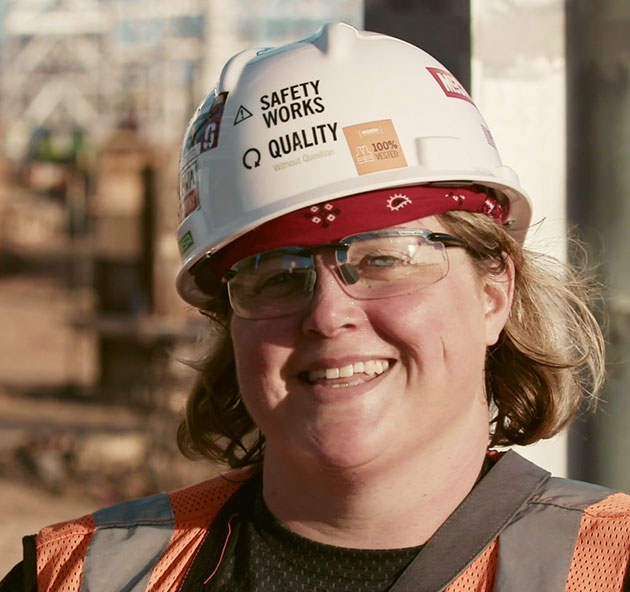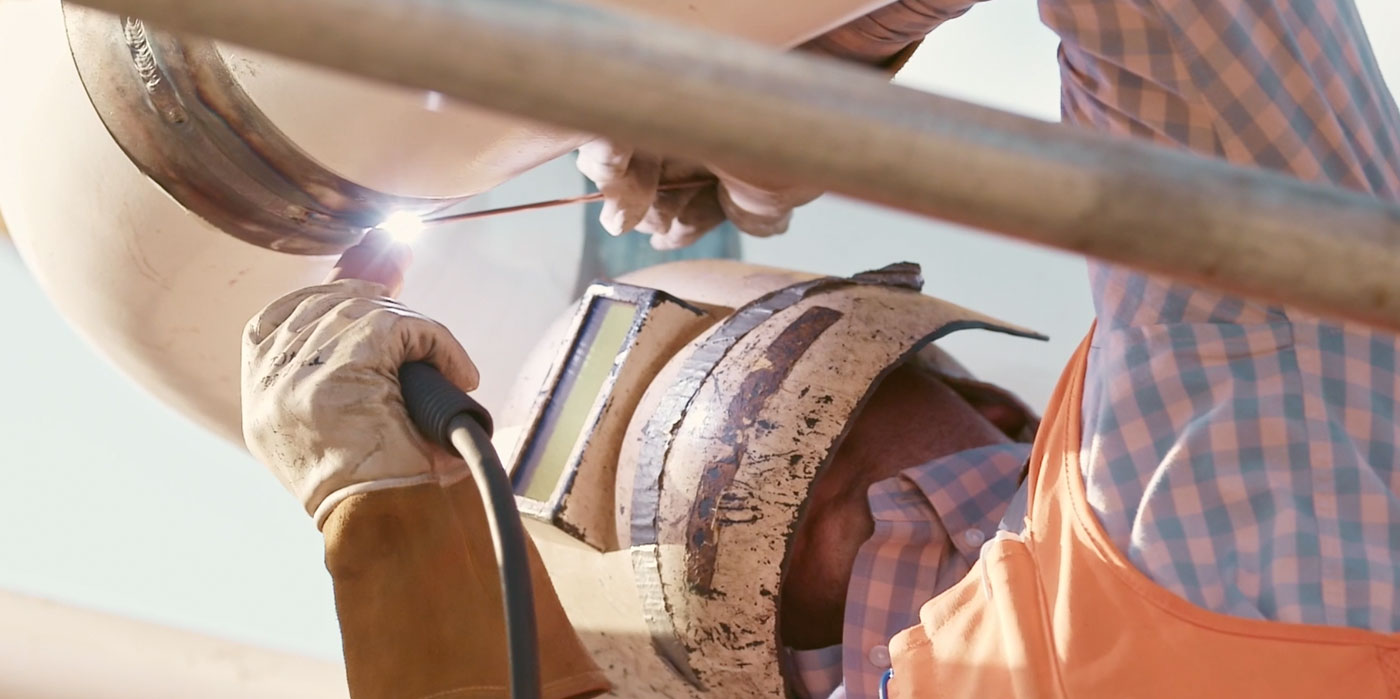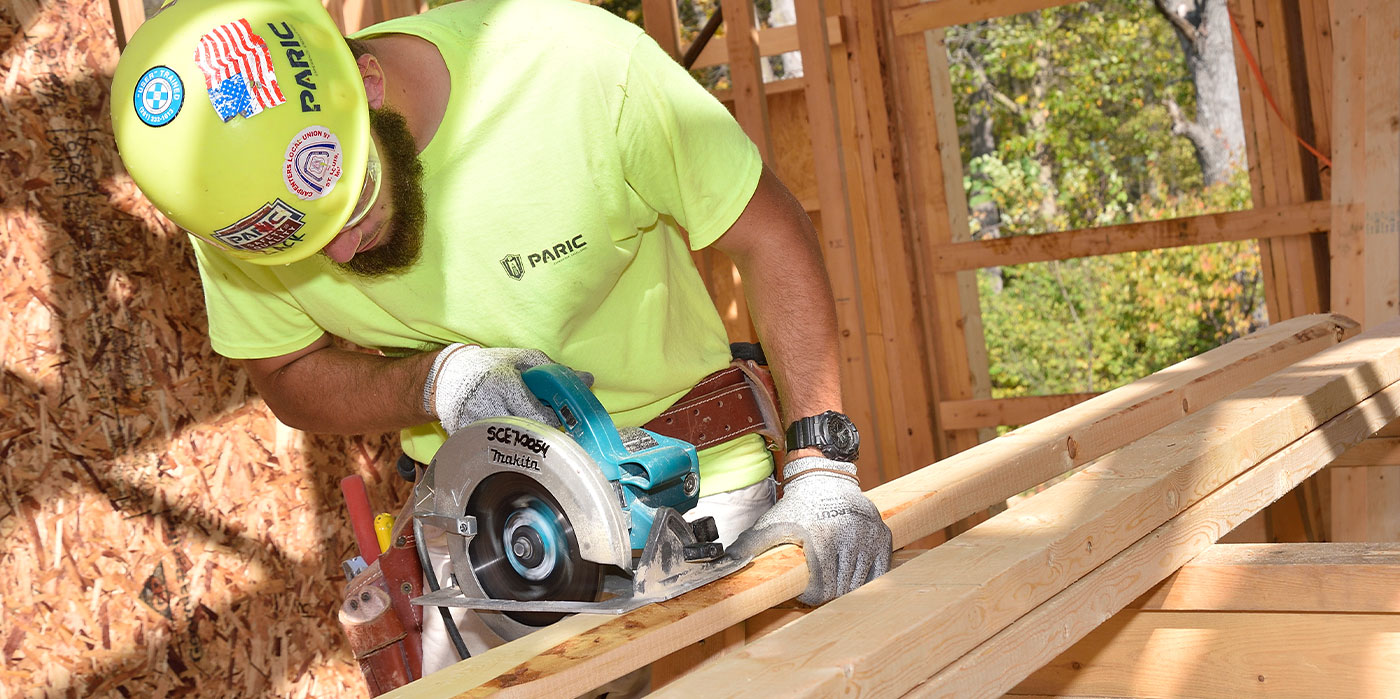Tradespeople are creative problem solvers, continually honing their crafts and learning new technologies. Across the nation, skilled tradespeople are in high demand and low supply. That means when you pursue a trade career, you can get a great job quickly — without an expensive four-year degree — and you will always be needed, valued, and well-paid.
Why a Trade?
When you master a trade, you learn lifelong skills that can guarantee you a successful career nearly anywhere in the world.
68% of tradespeople report that their work gives them a sense of success and achievement.
$80k+ earning potential for HVAC techs, mechanics, and other trades in St. Louis.
31M trades positions will be vacant by 2020 as older generations retire.
Assistant Project Manager
McCarthy Building companies
Working in construction is extremely gratifying, and each day is completely different from the last. There is never a dull moment, and that’s what I love about it.

What Do I Need?
If you’re thinking that a job that lets you make a difference, isn’t affected by the economy, and offers boundless opportunity for advancement sounds too good to be true, think again. If you’re hard working, self-motivated and can meet some basic requirements, you can start an exciting career in the trades in a matter of months.
High school or GED
Very few positions in the trades don’t require a high school diploma or GED, and higher paying jobs always will.
Training, certification, or experience
In order to master a trade, you’ll need to learn from the experts; and you can always up-skill and take your craft even farther!
Enjoy hands-on work
If you like to get hands-on with your work and feel a sense of satisfaction from building and creating, you’ll excel at a trade.
Strong math and reading
Whether you’re calculating measurements or reading blueprints and project guidelines, you’ll need to comfortable with numbers and words.
Hand-eye coordination
You don’t need to be super strong to pursue a trade — you just need good dexterity, stamina and balance!
Creative problem-solving
A master tradesperson can rise to a challenge and find inventive ways to achieve almost any goal.
High school or GED
Very few positions in the trades don’t require a high school diploma or GED, and higher paying jobs always will.
Training, certification, or experience
In order to master a trade, you’ll need to learn from the experts; and you can always up-skill and take your craft even farther!
Creative problem-solving
If you like to get hands-on with your work and feel a sense of satisfaction from building and creating, you’ll excel at a trade.
Strong math and reading
Whether you’re calculating measurements or reading blueprints and project guidelines, you’ll need to comfortable with numbers and words.
Hand-eye coordination
You don’t need to be super strong to pursue a trade — you just need good dexterity, stamina and balance!
Flexibility
A master tradesperson can rise to a challenge and find inventive ways to achieve almost any goal.
What Can I Do?
You’re ready to get to work and start earning the pay you deserve. With a career in the trades, you can have it all. Fulfilling work, awesome opportunities, transferrable skills, and high demand are just some of the many perks to starting a career in this industry. Check out some of the paths you can take on your journey to becoming a master craftsperson!
Want to explore other options?
Check out other open positions in the trades in our area!






